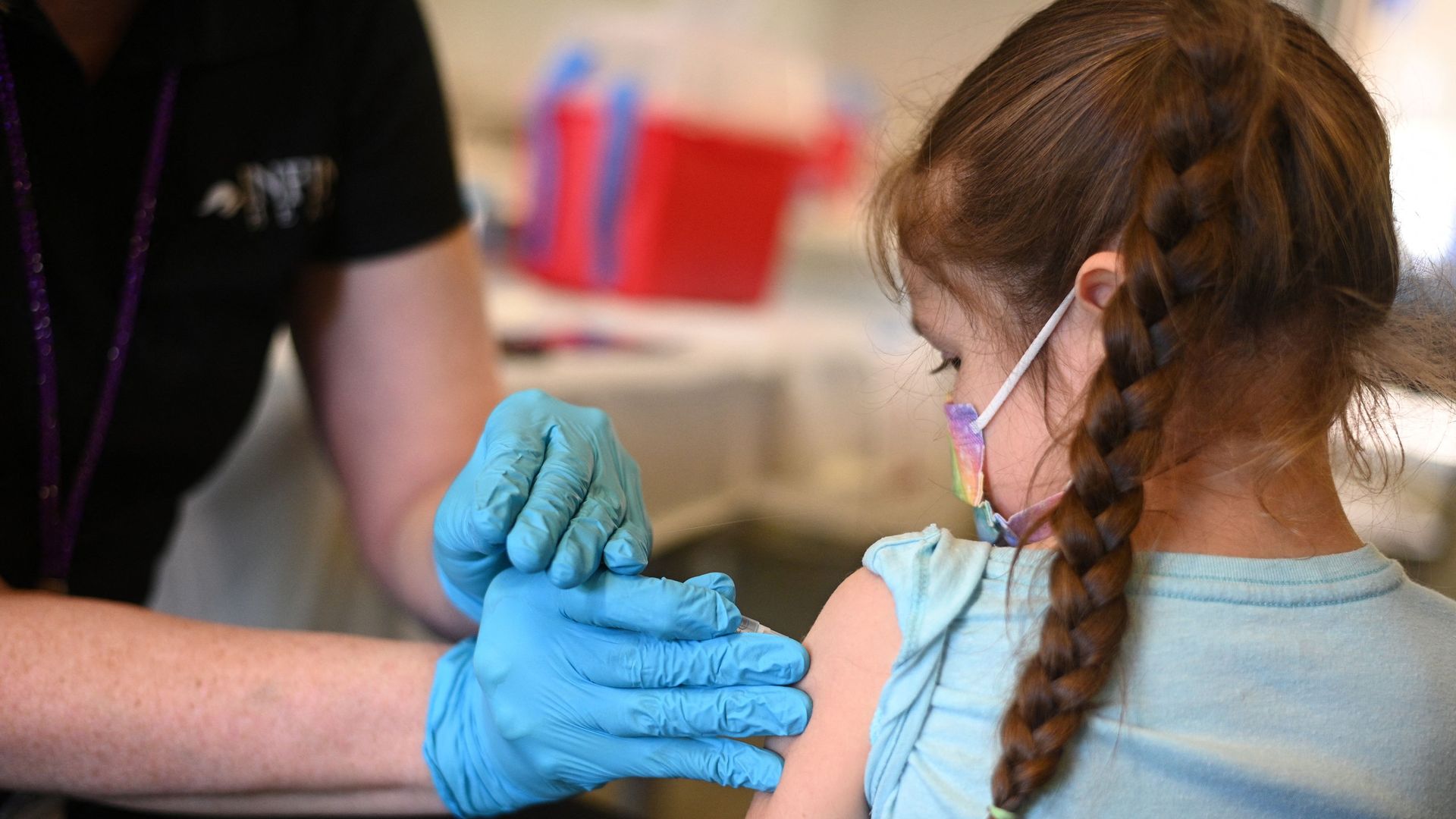Updated Jun 9, 2022 - Health
Biden administration outlines plan for vaccinating children under 5
Add Axios as your preferred source to
see more of our stories on Google.

A nurse administers a Covid-19 vaccine to a girl at a clinic in Los Angeles early this year. Photo: Robyn Beck/AFP via Getty Images
